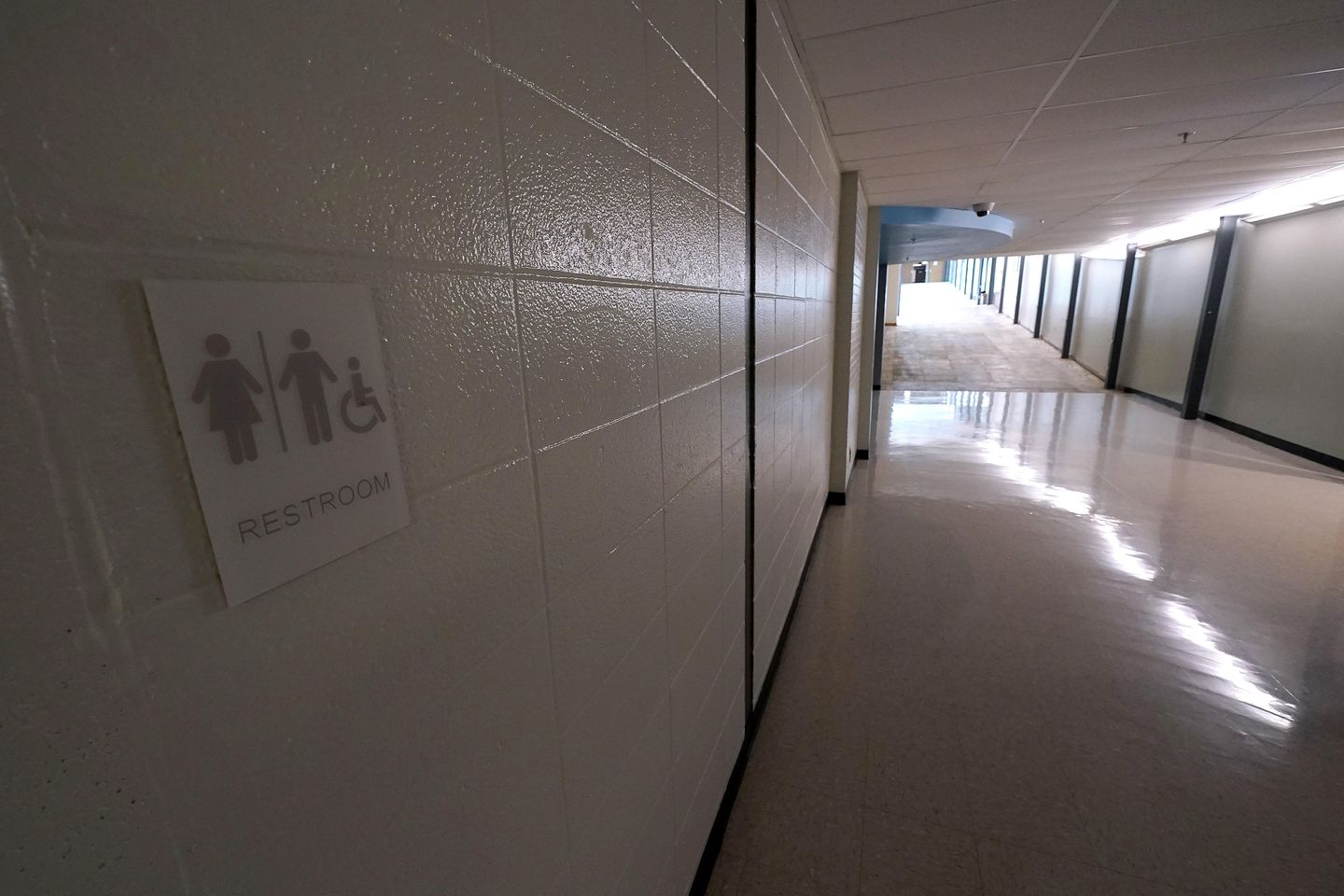
A transgender employee at the National Guard Bureau has filed a class-action complaint against the Trump administration over its policy requiring federal workers to use restrooms and other public facilities based on biological sex, not gender identity.
LeAnne Keely Erin Winthrow, a civilian employee at the Illinois National Guard, accused the bureau, the Department of Defense, and the Office of Personnel Management of violating Title VII of the Civil Rights Act of 1964, which prohibits sex discrimination in employment.
The complaint filed Monday said that Ms. Winthrow, who transitioned from male to female in 2016, was told by supervisors “that she may not use restrooms and other facilities designated for women” shortly after President Trump signed his Jan. 20 executive order recognizing two sexes, male and female.
“Let’s be clear – if you cannot use the bathroom at work, you cannot go to work,” said Shana Knizhnik, senior staff attorney for the ACLU’s LGBTQ & HIV Project, which represents Ms. Winthrow.
The complaint was filed with the National Guard Bureau Equal Opportunity Office.
“Transgender federal workers across the federal government are facing an intentional effort to drive them out of the workforce and out of public life by an administration with no shortage of hostility towards them and their identities,” Ms. Knizhnik said.
“We look forward to making this case to the agency and will do everything we can to ensure all federal workers are treated equally and fairly regardless of who they love or who they are,” she said.
The complaint also asked that Ms. Winthrow “serve as the agent of a class of all transgender and/or intersex employees of the federal government,” who could number in the thousands.
Ms. Winthrow called the federal policy a “blatant effort to push people like me out of the federal workforce.”
“This policy would put a needless barrier between my work on behalf of military families, forcing me to choose between my service to this country and my own dignity,” said Ms. Winthrow.
The complainant was described as “the first openly transgender Illinois National Guard Soldier,” as well as “the first to serve in her corrected gender and be recognized in the Defense Enrollment Eligibility Reporting System.”
Ms. Winthrow, who has worked for the bureau since 2016, has used women’s bathrooms and exercise facilities at Camp Lincoln in Springfield and other outposts “without any issues raised by other women,” according to the document.
“But even if other women would prefer that Complainant not use a women’s bathroom or exercise facility, that would be legally irrelevant,” said the complaint, citing a 2015 Equal Employment Opportunity Commission decision.
That ruling, Lusardi v. Department of the Army, found that Title VII prohibits discrimination against transgender employees even when motivated by “the desire to accommodate other people’s prejudices or discomfort.”
The complaint also cited the Supreme Court’s 2020 decision in Bostock v. Clayton County, which held that Title VII’s ban on sex discrimination in employment includes gender identity.
In his executive order, Mr. Trump directed agencies to take “appropriate action to ensure that intimate spaces designated for women, girls, or females (or for men, boys, or males) are designated by sex and not identity.”
“Efforts to eradicate the biological reality of sex fundamentally attack women by depriving them of their dignity, safety, and well-being,” said the order.
There are 1.8 million federal civilian employees. About 0.5% of U.S. adults are transgender, according to the Williams Institute at UCLA.
The estimated number of intersex adults ranges from 0.05% to 1.7%. Intersex people often have physical sex characteristics that are inconsistent with their chromosomal sex.












